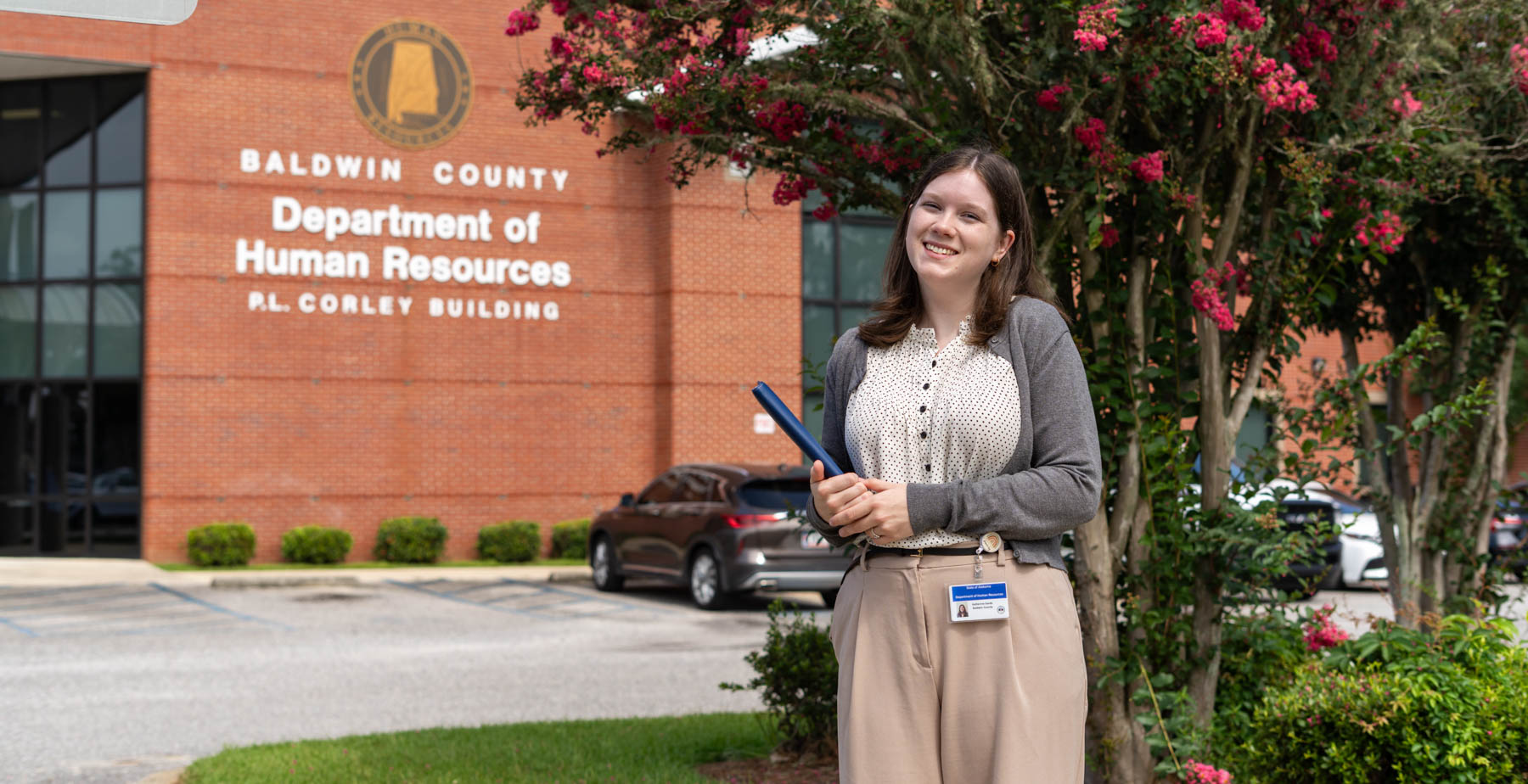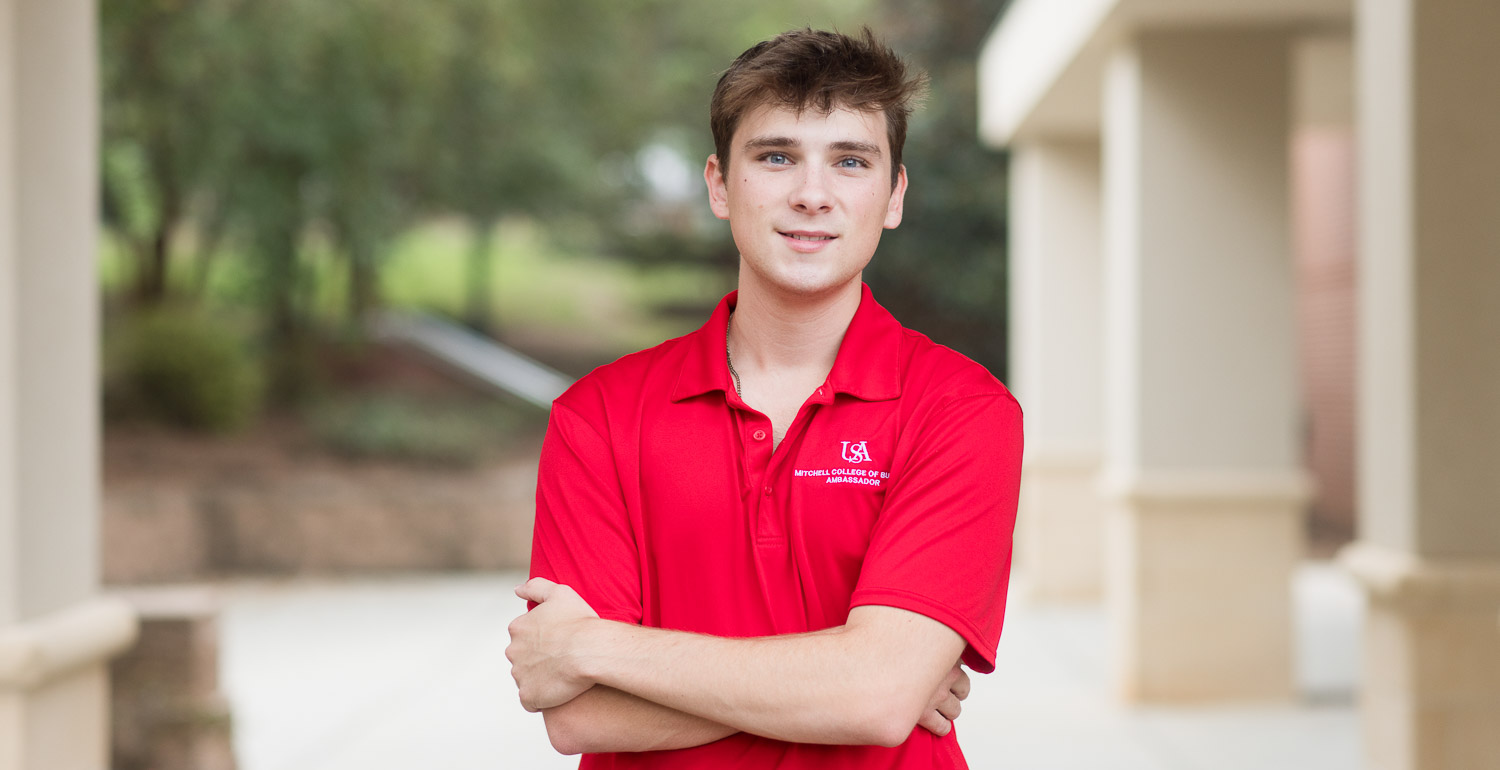A Helping Professional
Posted on August 5, 2025

Katie Sands always knew she wanted to work with children, and something about social work caught her attention. Today, Sands works in the foster care unit at the Baldwin County Department of Human Resources, where she recently began her first full-time job in the Social Worker I position.
“There are so many opportunities within this field,” said Sands, who graduated from the University of South Alabama in May. “It’s such a diverse degree. I could still work with kids — which was my passion — but I’d also be able to help families in really meaningful ways.”
When Sands visited South’s campus for the first time, something clicked.
“I was touring several colleges during my senior year, and when I came to South, it felt familiar and calm,” she said. “There was this immediate sense of community — and I loved how much nature was embedded throughout campus. It felt like home.”
Originally from Ocean Springs, Mississippi, Sands wanted a college experience close to home; more importantly, she wanted a place where she could grow. It was an introductory course with Social Work Instructor Laurie Haas that solidified her decision. “That class made me fall in love with what social workers can do,” she said. “We are a helping profession, and that truly aligned with my values.”
A Real-World Introduction to Helping Others
Sands, who is working to become a licensed social worker by the end of the year, is still a rookie in her job. But she said thanks to her internship at Mobile County DHR, she’s already well acquainted with its realities.
“I work in case management, which means I’m directly involved with children in foster care and their families,” she explained. “Our main goal is reunification — if it’s possible, we work toward bringing families back together.”
Her day-to-day responsibilities are as varied as they are vital. She helps fulfill each case’s individualized service plan, which can involve coordinating parenting classes or counseling, arranging placements, attending court hearings, setting up Medicaid and writing family assessments.
“It’s new every day, and it’s never boring,” Sands said.
One of the biggest surprises so far? The sheer amount of paperwork and policy involved.
“There’s a heavy emphasis on getting things right,” she said. “We’re working within strict guidelines to make sure children are safe. Every detail matters.”
Learning by Doing, Witnessing the Impact
During her internship, Sands had the chance to shadow caseworkers on home visits, gaining insight into both the challenges and the rewards of working in child welfare. That experience changed the way she viewed her future.
“I went into it ready to change the world and help every person I could,” she said. “But there are so many hurdles in foster care. It’s one thing to hear about it in class — and another thing to live it.”
She discovered that placements were often limited, that collaboration across counties was sometimes essential, and that creativity was a crucial part of solving problems. But she also learned that perseverance pays off.
“When the permanency plan for a child is reached — when they’re safe and settled — that’s the reminder of why we do this,” she said. “That’s what makes it all worth it.”
Supported by Mentors and a Mission
Sands credits the University of South Alabama’s social work program and its dedicated faculty with preparing her to meet the demands of her profession.
Now that she’s working in the field, Sands has a message for others following in her footsteps:
“Don’t doubt yourself. This is a difficult field, no matter where you land. You’ll get discouraged or overwhelmed — but you’re here for a reason, and you can do it.”
She’s also quick to remind aspiring social workers to give themselves grace. “It’s okay to make mistakes,” she said. “What matters is pushing through and continuing to show up.”



